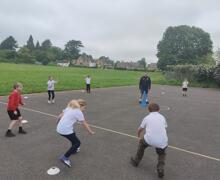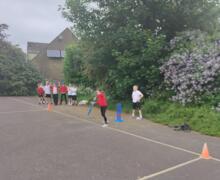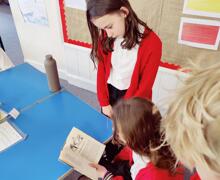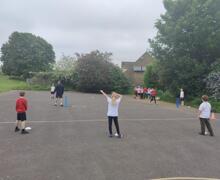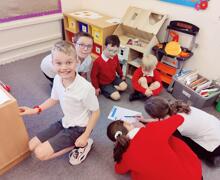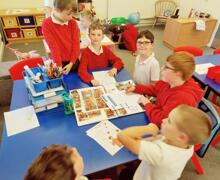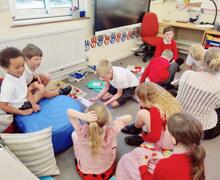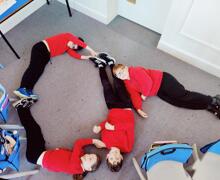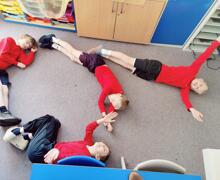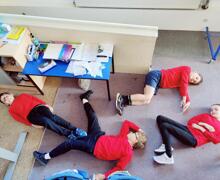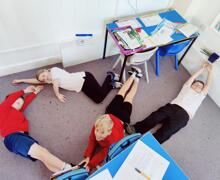- Home
- Curriculum
- Classes
- Cedar - Key Stage 2
- facebook Share this page on Facebook
- twitter Tweet this page
- pinterest Pin this page
Cedar - Key Stage 2
![]()
![]() Term 3 and 4 Project - Sow, Grow and Farm
Term 3 and 4 Project - Sow, Grow and Farm
In the Sow, Grow and Farm project, the children will explore the features and characteristics of land use in agricultural regions across the world, including a detailed exploration of significant environmental areas. They will also learn about the seasonality of food and this links with their Design and Technology unit "Eat the Seasons".
| Reading |
Class text: Impossible Creatures |
| Writing |
David Attenborough (Biography); The Explorer (Narrative); Varmints (Narrative) |
| Maths |
Year 3 & 4 - Fractions; Mutliplication & Division; Length & Perimeter; Mass & Capacity Year 5 & 6 - Fractions; Decimals; Area, Perimeter & Volume; Fractions, Decimals & Percentages KS2 will have a lesson on money delivered by HSBC in Term 3 |
|
Sow, Grow and Farm - Geography |
In the Sow, Grow and Farm project, the children will explore the features and characteristics of land use in agricultural regions across the world, including a detailed exploration of significant environmental areas. Visit to Cogges Farm (Term 4) |
| Religious Education |
Christianity - Concept: Creation/Fall What do Christians Learn from the Creation Story? In this RE project, children will explore the Christian belief of Creation and Fall through the Big Question, “What do Christians learn from the creation story?”, using the Creation/Fall panel of the Big Frieze to understand what Christians believe about God, people and the world. They will learn how these beliefs shape Christian ideas about responsibility, choices and caring for creation, before exploring the story of the Fall and its meaning for human behaviour. By the end of the project, children will explain how Christians believe forgiveness helps repair relationships and how these beliefs continue to influence Christian life today. Christianity - Concept: Salvation Why do Christians call the day Jesus died Good Friday? In this RE project, children will explore the Christian concept of Salvation through the Big Question “Why do Christians call the day Jesus died Good Friday?”, beginning with the Salvation panel of the Big Frieze. They will learn about the events of Holy Week and Easter, exploring Christian beliefs about Jesus’ death, forgiveness and hope, and how these beliefs shape Christian life today. By the end of the unit, children will be able to explain why Christians see Good Friday as good news and why Salvation is central to Christianity. |
| Science |
Human Reproduction & Ageing: During this unit, children will explore how humans and animals grow, develop and change across their life cycles, including a detailed focus on human development and ageing. Pupils will carry out scientific investigations, collect and analyse data, and learn how scientists draw conclusions and evaluate evidence. Older pupils will also learn about human reproduction in an age-appropriate way, while all children will finish by creating a human life cycle timeline to show their understanding. |
| Design and Technology |
Eat the Seasons: This project teaches children about the meaning and benefits of seasonal eating, including food preparation and cooking techniques. |
| Art and Design |
Line, Light & Shadows: This project teaches children about the visual qualities of line, light and shadow. They explore the work of Pablo Picasso and Rembrandt and are introduced to a range of shading techniques. They take black and white photographs and use pencil, pen and ink wash to reimagine their photographs in a shaded drawing. Memorable Experience: Picasso Art Gallery (Term 3) Nature's Art: This project teaches children about the genre of land art. They work outdoors to sketch natural forms and explore the sculptural potential of natural materials before working collaboratively to create land art installations. |
| PE |
Indoor (Wednesdays); Outdoor (Fridays) |
| Music | Singing - Across this Singing project, children will develop confidence, control and expression in their voices through regular rehearsal, performance and reflection. They will learn to sing accurately as part of an ensemble, exploring pitch, pulse, dynamics and expression while responding to musical cues and each other. The project culminates in a confident, polished group performance where pupils demonstrate progression in musical vocabulary, technique and performance skills. |
| Computing |
Digital Literacy Skills: This term, pupils will develop their digital literacy skills by learning how to use technology purposefully to research, organise, and present information. They will explore how data can be collected and displayed, practise effective online searching, and learn how to communicate clearly and respectfully in digital spaces. As part of Safer Internet Week, children will also deepen their understanding of online safety, digital footprints, and how to report concerns so they can use technology responsibly and confidently. |
|
|
Please ensure that children arrive on Wednesday (Indoor) and Fridays (Outdoor) in their PE kits and bring a named water bottle with them.
Memorable Experiences
Minster Lovell Ruins - Thursday 11th September
The children have been learning about what happened after the Romans left Britain. As part of their history project, they enjoyed their walk to the atmospheric Minster Lovell Ruins, where they were able to step back in time and imagine what a Viking invasion might have looked like in such a historic setting.
The children are now using their experiences to deepen their understanding of the period and think carefully about the impact of invasions on life in Britain after the Romans left.
Pupil Voice:
"It felt like we were really there, defending the ruins from the Vikings!" - Ed
"I liked imagining the sounds of swords clashing and the shouts of warriors echoing through the ruins" - Lenny
"Walking through the countryside made me think about how far the Vikings would have had to travel to reach places like this." - Elliot
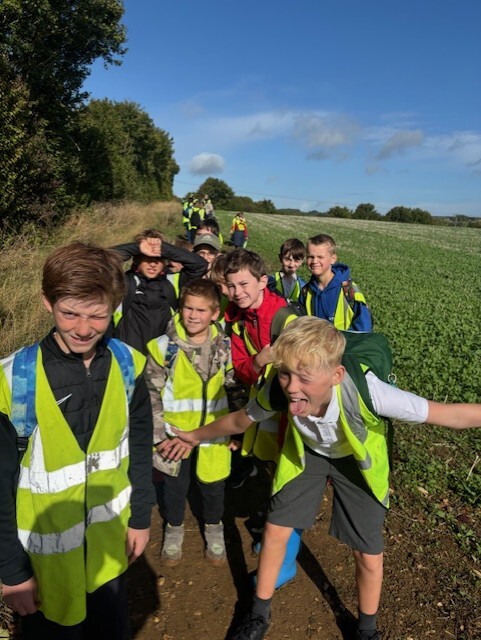
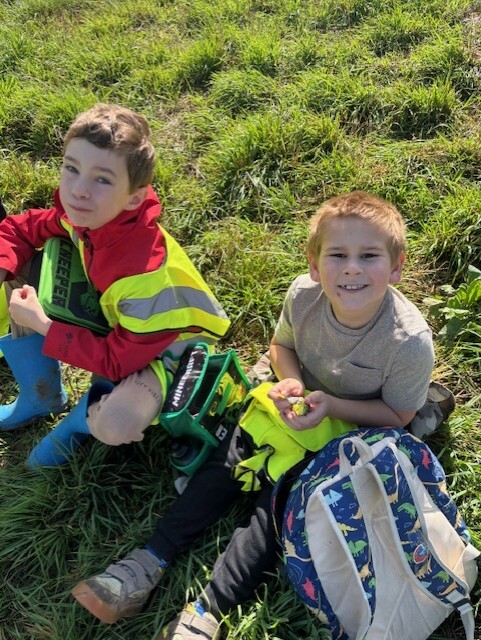
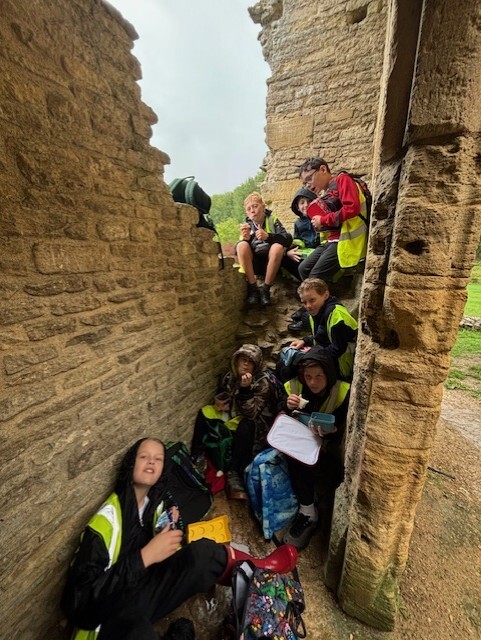
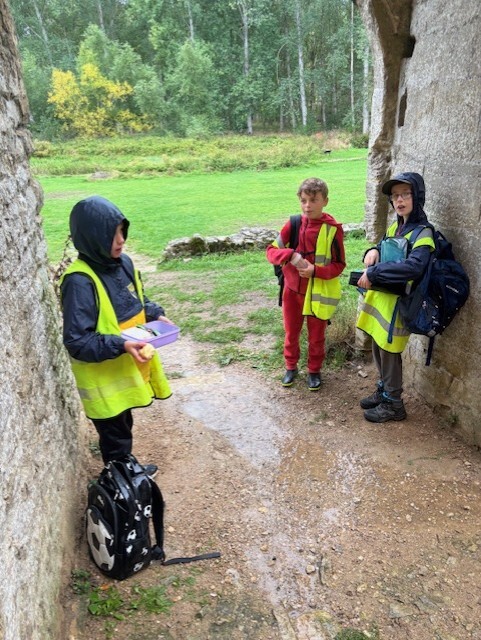
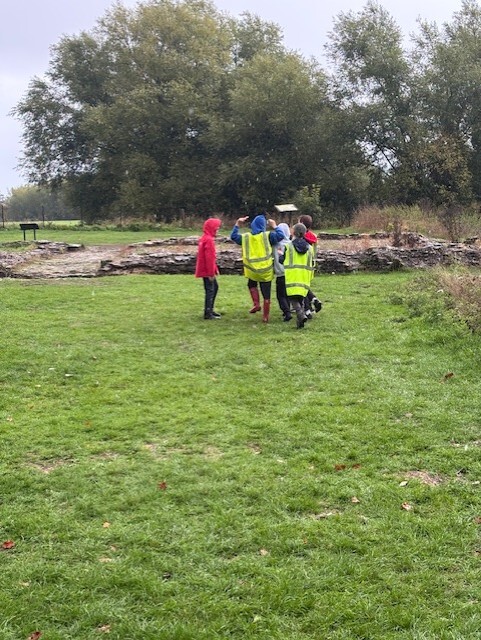
Home learning
Homework will be set on a Friday. Home learning journals will be sent home to be returned by the following Thursday. Activities and reading logs can be accessed via our online learning platform, Learning with Parents.
Log on to TTRS or Numbots to practice your times tables and number bonds. Try to do this 5 minutes a day - it really makes a difference! Log in details can be found in your home learning journal.
Reading Books
We hope that you will be able to read with your child for at least 10 minutes per day.
Every Friday we will have a library session during which your child will choose a new reading book to take home or continue with one they are already reading. Books cannot be changed for a new text unless the previous one is returned.
Times Tables Rock Stars and Numbots
Please use your username and password to log into the platforms (it is the same for both). Here you can practise your number bonds and times tables. Certificates will be given out in Celebration Assembly on Fridays.
On Complete Maths the children will be able to acces learning to support what they are doing in class. These are bespoke projects, designed by their teacher to push their learning on.
https://ttrockstars.com/ - Time table practice. A specific times table will be set by your teacher weekly
https://numbots.com/ - Number bond practice.
Term 3 and 4
Collective Worship

Justice this term takes centre stage as our whole school explores what it really means to do what is right in a way children can understand. A child‑friendly way to think about justice is: treating everyone fairly, making good choices, and helping to put things right when something feels wrong. Our key scripture, “Learn to do right; seek justice.” (Isaiah 1.17), guides everything we do.
What we’ll be learning
- Making wise decisions — inspired by Isaiah 1.17, we’ll think about how our choices affect others and how we can choose what is fair.
- Seeing God’s love in action — through Matthew 20.1–16, children will explore how God shows fairness and generosity.
- Seeing the whole picture — using 2 Corinthians 8.21, we’ll learn why honesty and doing the right thing matters even when no one is watching.
- Goodness is stronger than evil — from John 18–19, we’ll reflect on how goodness, courage, and truth can overcome wrong.
Throughout the term, children will practise being fair, sharing kindly, and thinking carefully about what is right, helping them grow into thoughtful, compassionate members of our school community.
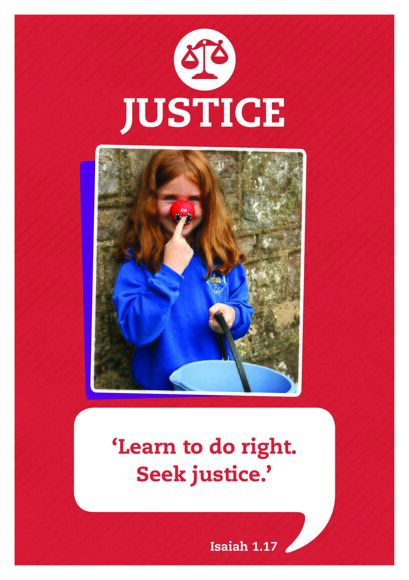
Religious Education
Term 1: Humanism
Big Question - What motivates Humanists to lead good lives?
This term, we will be exploring the ways that Humanists motivate themselves to lead good lives and how this relates to other religions and their own lives.
Week 1
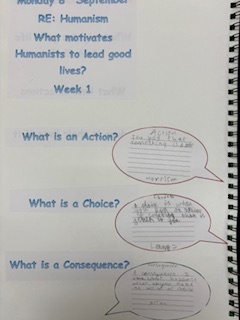
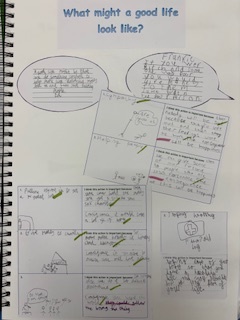
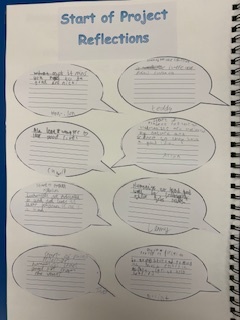
The children have explored what an action, a choice and a consequence is and how this leads to people making the right choices. They have also looked at examples of what they might do in life that is considered a choice, an action and a consequence. The children have attempted answering the Big Question in their Start of Project Reflections:
"Humanist are motivated by nature and science so they live a good life" - Arran
"Humanists lead god lives through their values" - Theo
Week 2
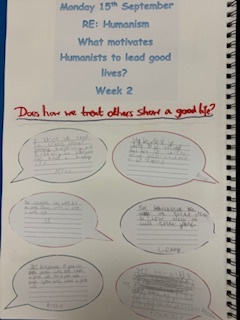
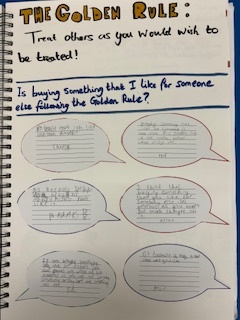
The children have, this week, considered the impact and the connection of how we treat people leads to living a good life. They were introduced to the golden rule "Treat others as you would wish to be treated" and then considered whether buying something that you like for someone else would be following that golden rule.
Week 3
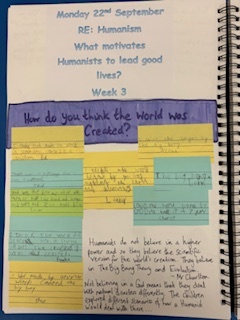
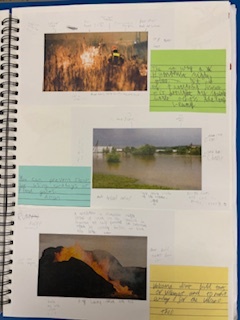
The children have now explored the golden rule and have this week considered how they think the world was created. The children provided answers such as the Big Bang, Evolution and God creating the world. A Humanist does not believe in a God and the children understood that they follow the scientific version of the world's creation. Bearing that in mind, the children explored how a Humanist might deal with natural disasters in the world and concluded that they would lean on each other for help and support.
Week 4
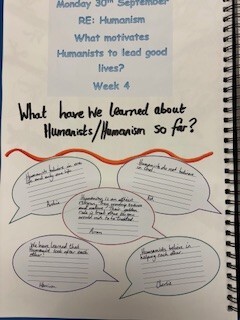
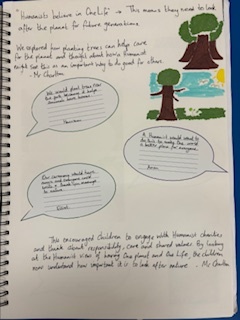
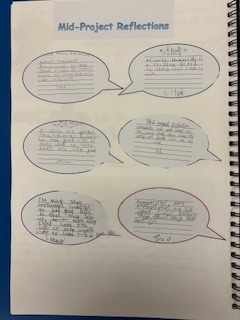
The children this week have consdered what they have learned in the project so far and have then explored another Humanist view on life. A Humanists believes that the is only one life and one planet. Therefore, they would want to look after the planet in order to sustain this for futre generations. The idea that Humanists believing that they only have one life brought up intriguing question regarding whether they would not be motivated to live a good life because they might view it as there being no consequence. However, the counter argument was discussed and they would only have one life going around and not being kind would go against their golden rule. They considered how they would look after the planet for future generations.
The children then answered the big question again at this point with their mid-project reflection.
Week 5
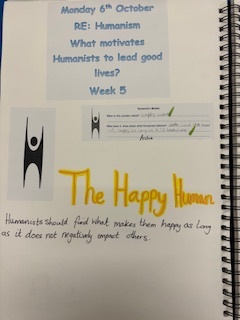
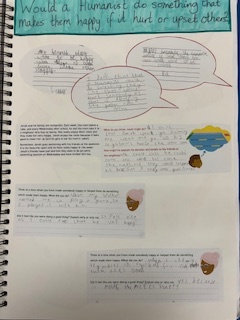
The children this week have been introduced to the symbol of Humanism and what this means. They understood it as "The Happy Human". This symbolises that humans should find and persue what makes them happy as long as it does not negatively impact others. They then considered how Humanists make choices and answered questions based on a scenario where someone is stuck in a dilemma and how they would overcome this.
Week 6
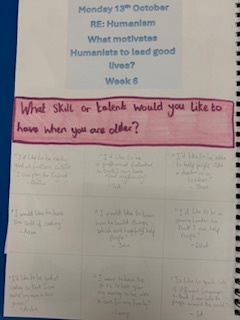
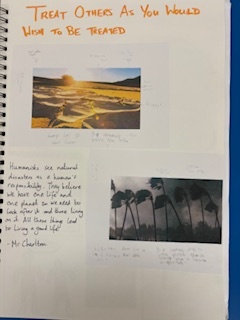
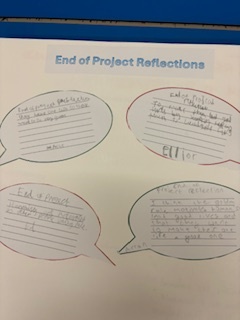
The children explored the end of project and have summarised everything that they have learned this term; the golden rule, the impact of how they live their lives and their motivations behind it, leading to the children being able to answer the Big Question: "What motivates Humanists to lead good lives?"
Term 2
RE: Christianity
What is the Trinity?
Week 1
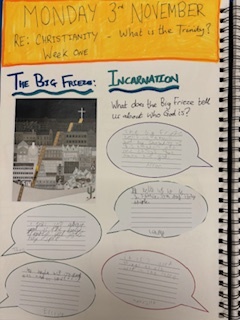
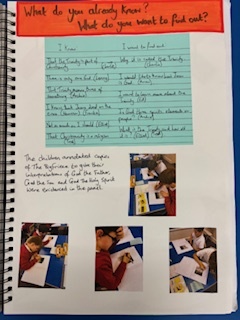
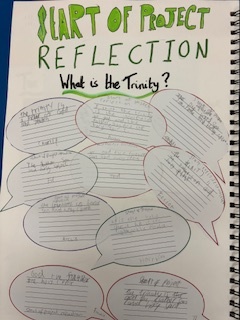
The children have started their second RE unit this term. The religion is Christianity and the concept is Incarnation. They are looking at the Big Question: What is the Trinity?
This week, the children viewed the Incarnation panel, which some of them have seen from units last year, but this time they have looked at what the Trinity is and where is can be seen in the Big Frieze. They understand the the Trinity is God the Father, Son and Holy Spirit, a concept that is difficult to understand. God is in three separate forms. They then answered the Big Question: What is the Trinity? as their Start of Project Reflection.
Week 2
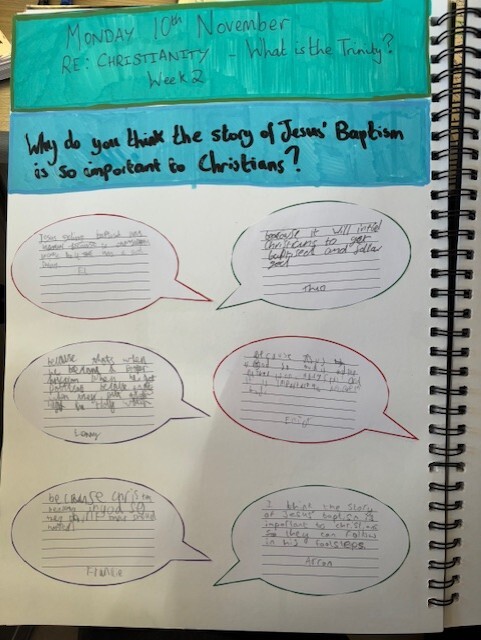
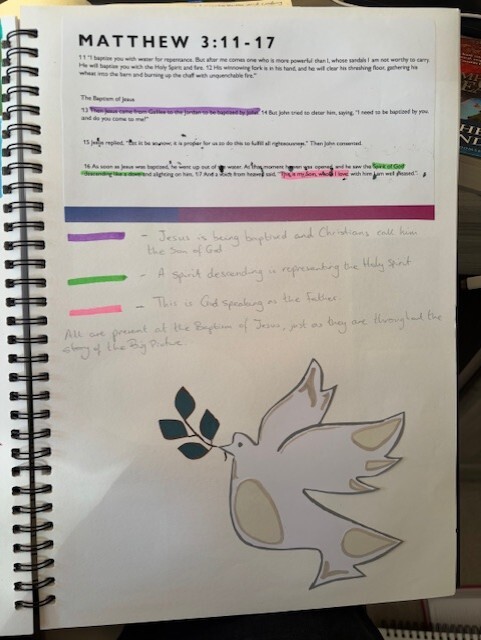
The children have explored Matthew 3:11-17 - the Baptism of Jesus and have annotated the story to understand where the Trinity are within the Bible story. The children have then completed artwork to symbolise Jesus Baptism with all parts of the Trinity present.
Week 3

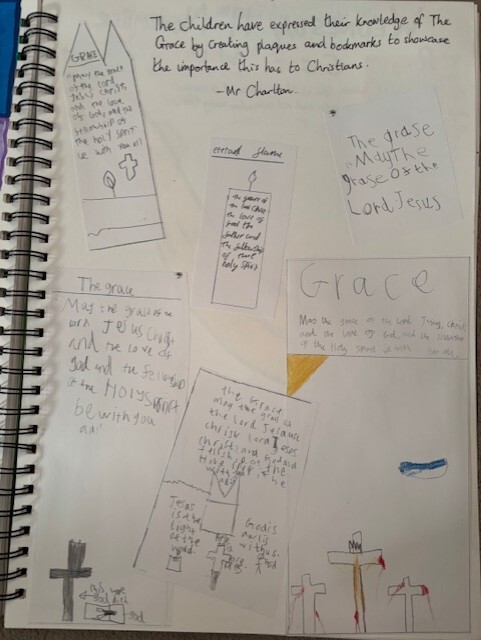
The children have explored The Grace and how the Trinity is present during Baptism today. The children have also made connections to how Christians feel about the Trinity being with them. They have created bookmarks and plaques to reprensent the Graceto demonstrate their learning this week.
Week 4
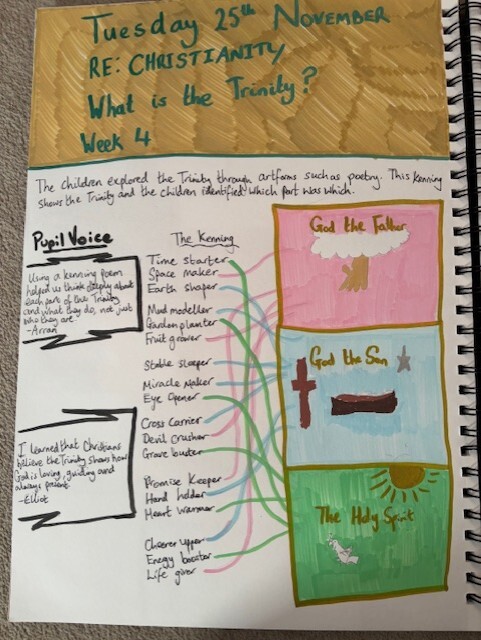
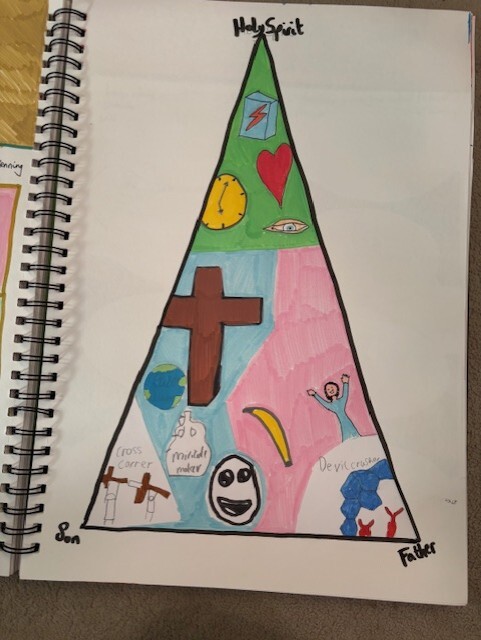
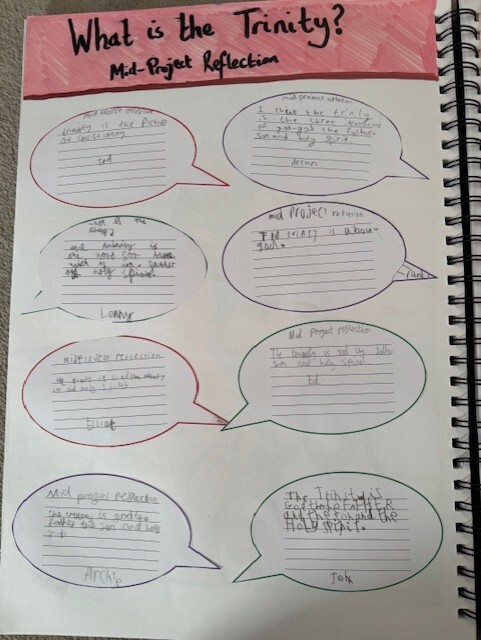
The children explored the Trinity through artforms such as poetry. They viewed the Kenning poem that shows the Trinity and the children identified which part was which. The children then demonstrated this in a Trinangle piece of art symbolising the three parts of the Trinity. The children gave their Mid-Project Reflections at the end of the lesson.
"The Trinity is God the Father, God the Son and God the Holy Spirit." - Archie
"I think that the Trinity is the three incarnations of God - God the Father, God the Son and God the Holy Spirit." - Arran
Week 5
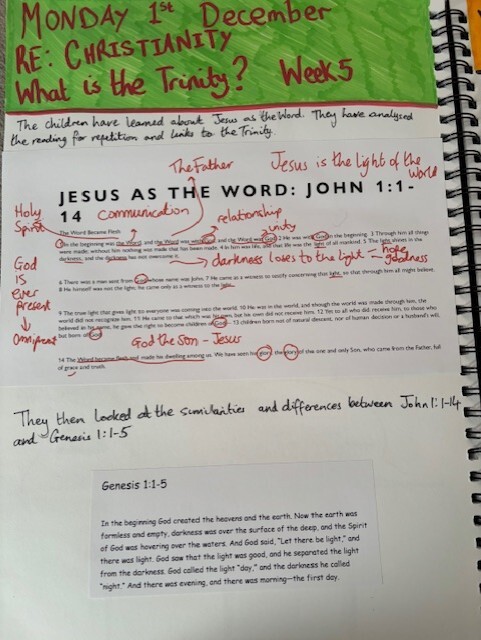
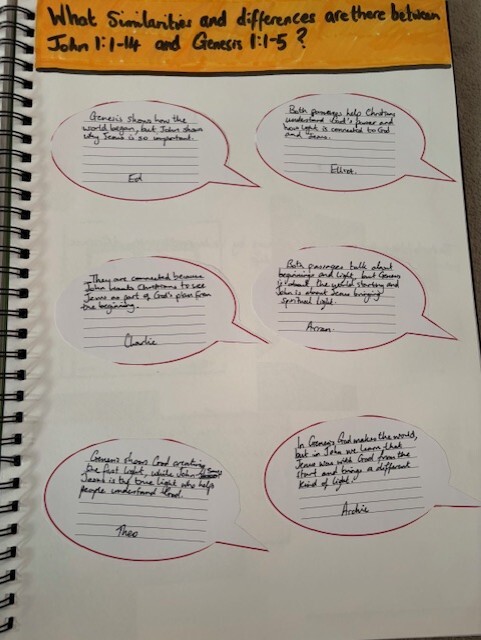
The children have learned about Jesus as the Word. They have analysed the reading for repetition and link to the Trinity. They then looked at the similarities and difference of John 1:1-14 and Genesis 1:1-5.
Week 6
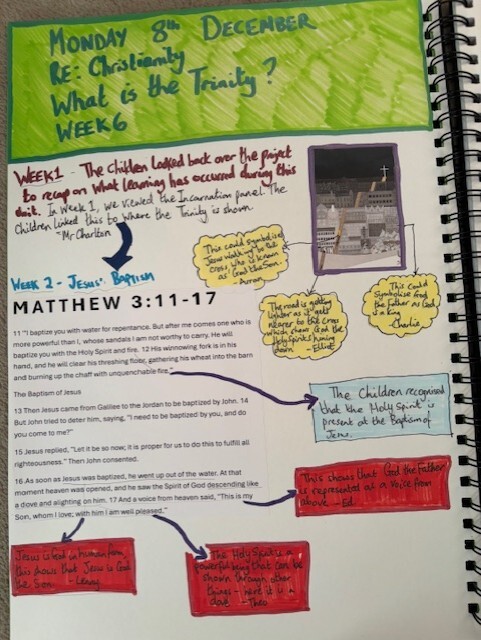
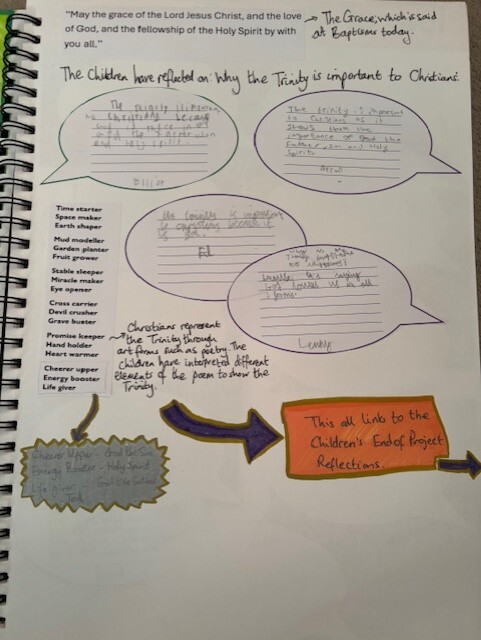
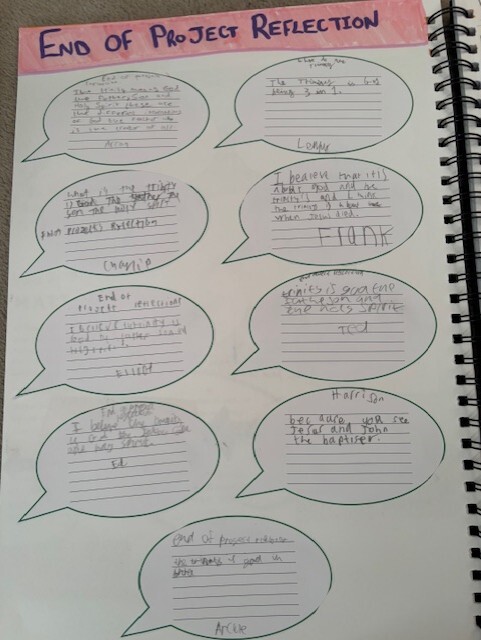
The children have recapped everything that they have done over the 6 weeks in order to answer the Big Question "What is the Trinity?" They have remembered how the Tinity is shown in the Big Frieze Incarnation panel. How the Trinity is present at the Baptism of Jesus and this follows on to be present in baptisms and worship in Christianity today. The children have learned how to symbolise this and then answered the Big Question itself in their End of Project Reflections.
Term 3
RE: Christianity
Concept: Creation/ Fall
Big Question: What do Christians Learn from the Creation Story?
Week 1
Collective Worship
Acts 20:35: Remember the words of the Lord Jesus, how he himself said, it is more blessed to give than to receive.
2 Corinthians 9.7: God loves a cheerful giver
This term's Christian Value is generosity.
This half term, our Collective Worship has centred around the Christian value of Generosity—giving freely, joyfully, and with love.
Scripture Focus: “God loves a cheerful giver” We began by exploring the Bible verse from 2 Corinthians 9:7, which reminds us that generosity is not just about giving, but about how we give. Children reflected on what it means to be a cheerful giver and how generosity can bring joy to both the giver and the receiver.
The Story of Johnny Appleseed We linked our learning to the story of Johnny Appleseed, a man known for planting apple trees and sharing nature’s gifts with others. His kindness and selflessness inspired the children to think about how small acts of giving can grow into something much bigger. Pupils created beautiful artwork to celebrate the story and its message.
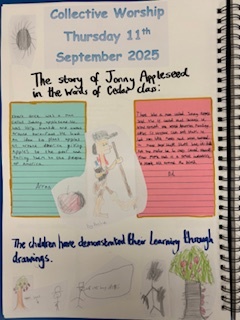
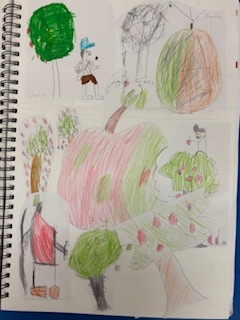
The Generous Widow We also listened to stories from the Gospels, including the tale of the Generous Widow who gave all she had, even though it was very little. This powerful story helped children understand that generosity isn’t about how much you give, but the heart behind it.
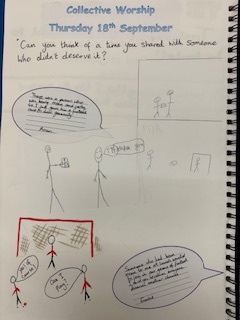
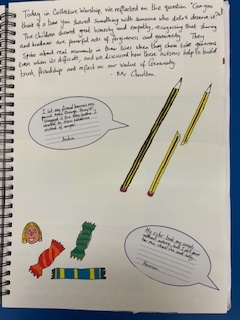
Good Deeds and Selflessness Through discussion and reflection, children shared examples of good deeds they’ve seen or done themselves—from helping a friend to donating to charity. We talked about selflessness and how giving without expecting anything in return is one of the most meaningful ways to live out our values.
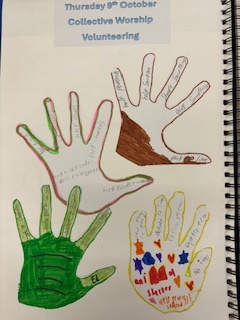
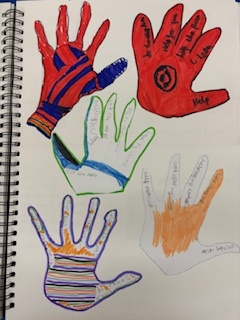
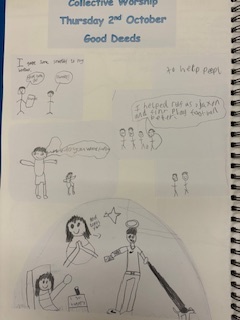
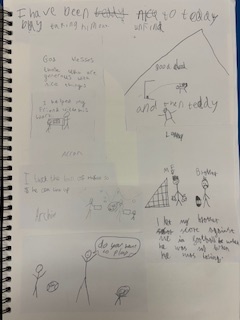
Living Generously Every Day Our worship has encouraged children to think about how they can be generous in their daily lives—with their time, their words, and their actions. Whether it’s sharing a smile, helping at home, or being kind to someone in need, we’ve celebrated the many ways generosity can shine through
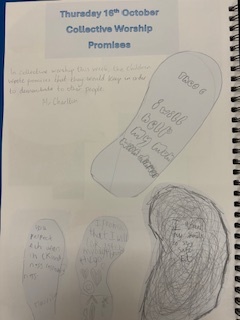
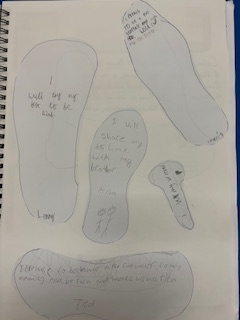

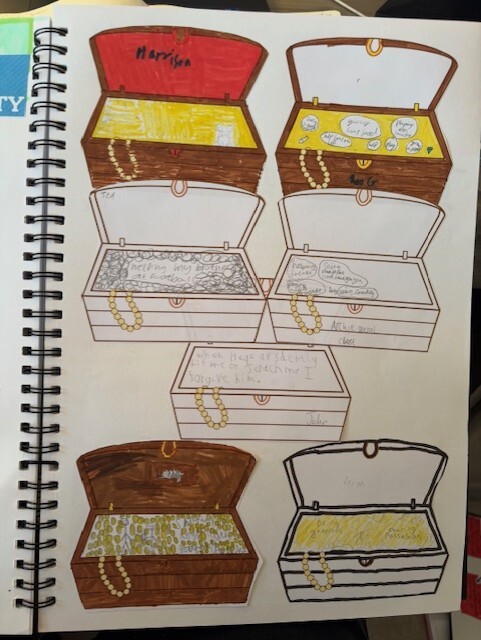
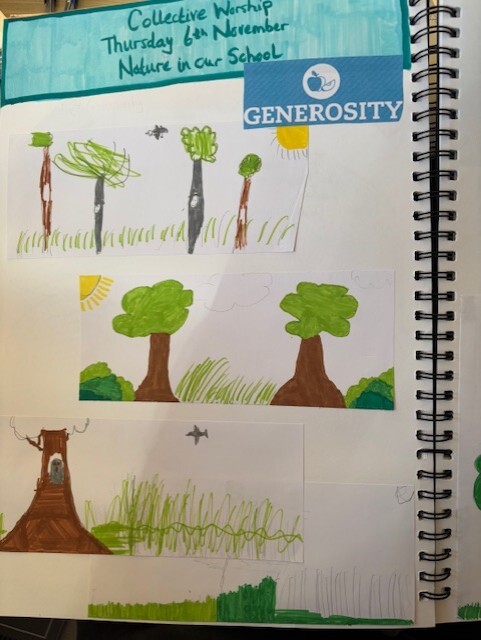
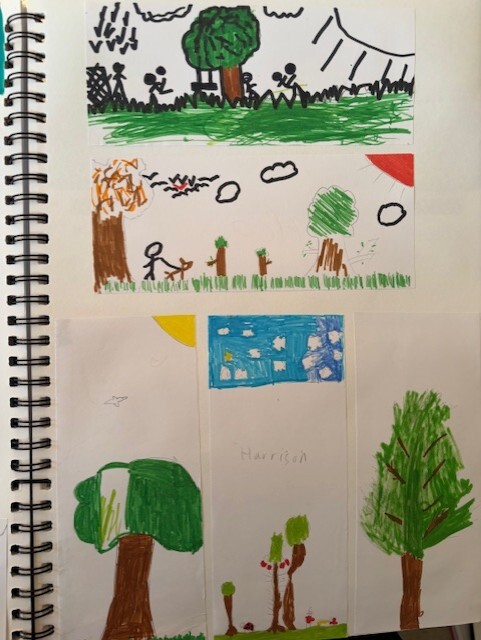
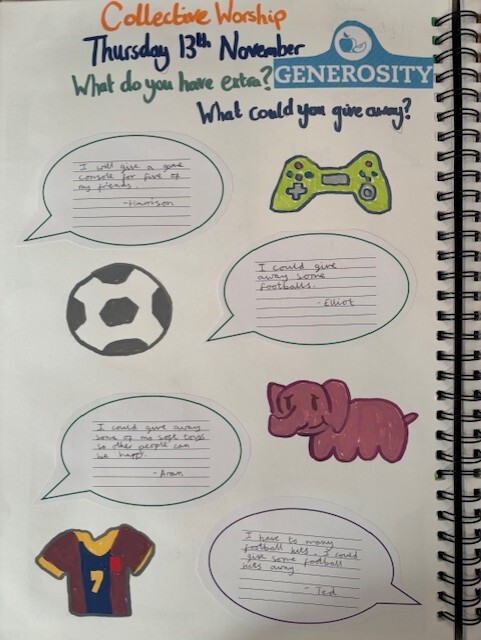
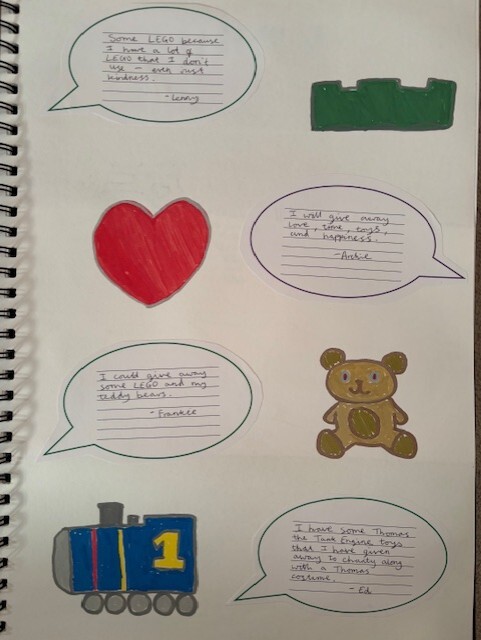
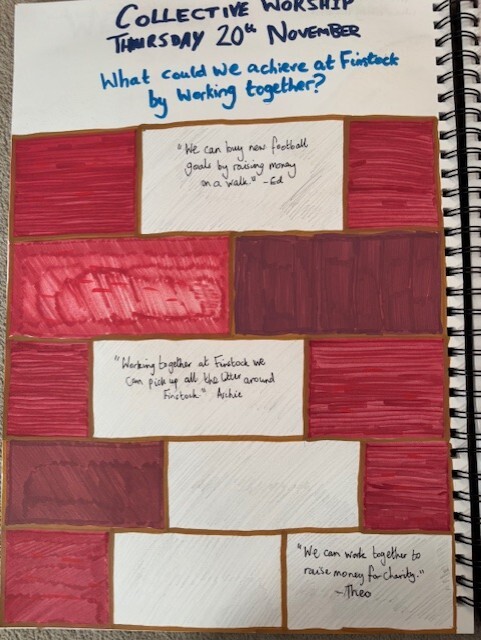
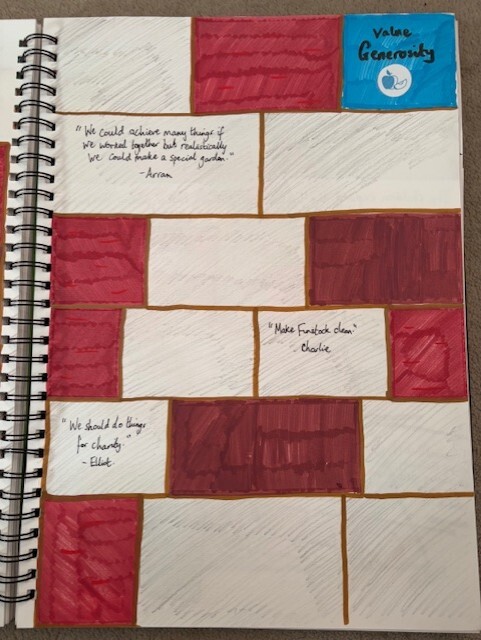
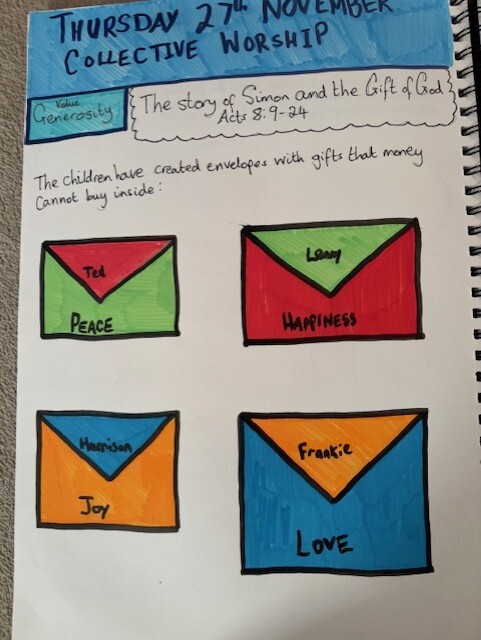
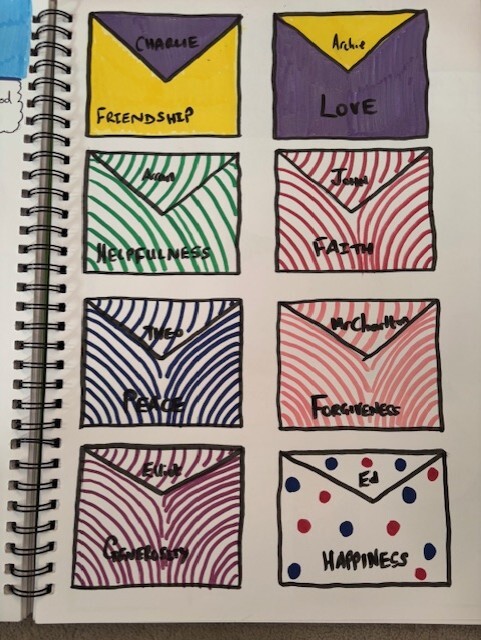
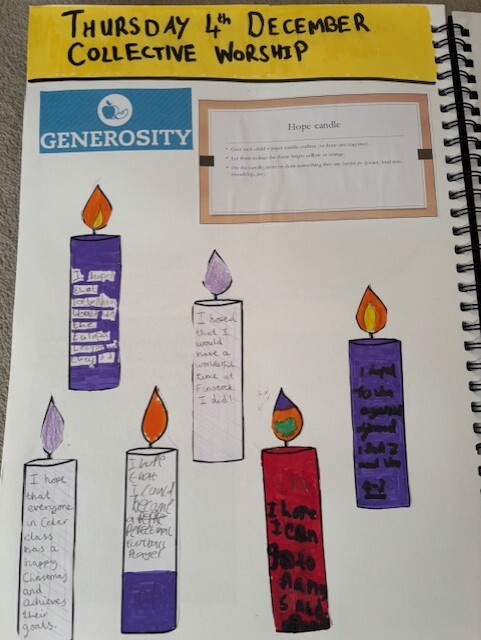
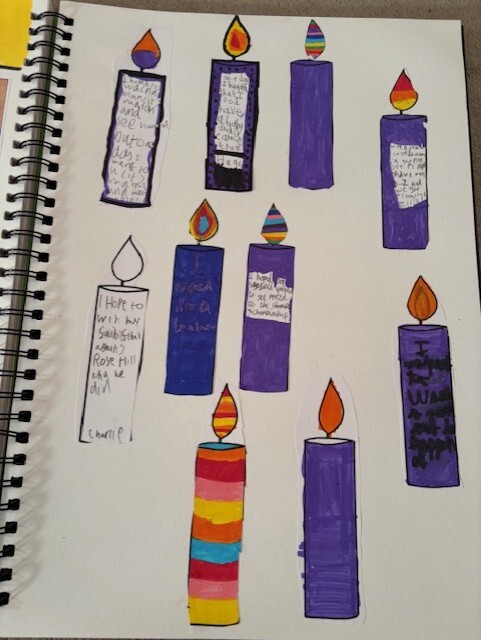
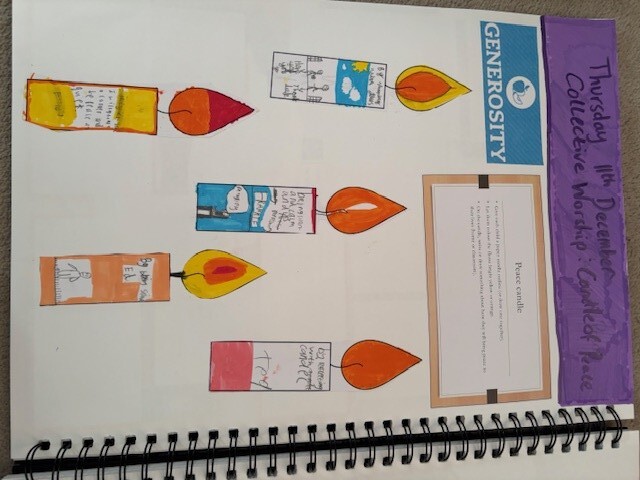
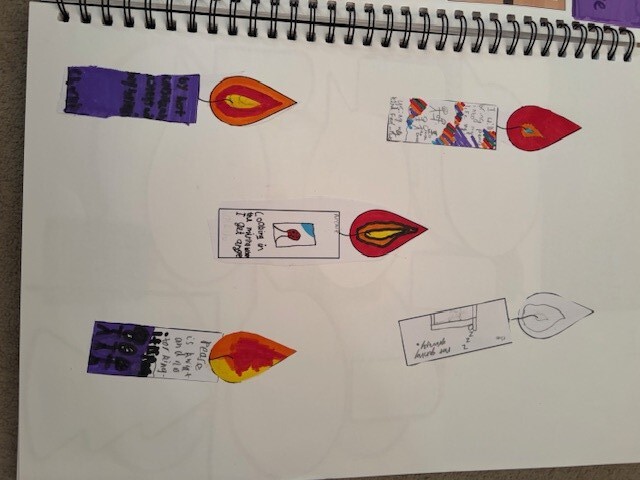
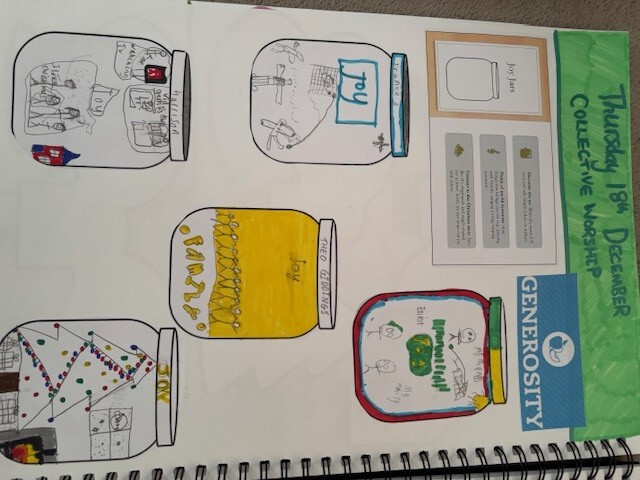
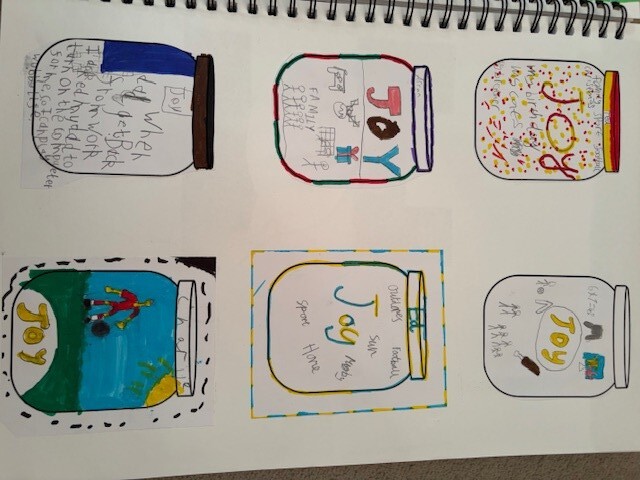

Prayer space
Prayer spaces enable children and young people, of all faiths and none, to explore life's questions, spirituality and faith in a safe and creative ways.
In our Prayer Space, the children have a choice of actvities to help them reflect and be mindful:
Term 1 & 2
Generosi-Tree - This enables the children to reflect on our school Value of Generosity this term and think about the things they could be generous with and they stick these onto our tree.
Mindfulness Lego - A space to be creative and get lost in their imaginations, building various things with building bricks.
Listening Corner - In our classroom tipi, the children have a space to reflect and listen to the world around them
Big Questions - We have the opportunity to answer big questions in the world, including "What does peace look like?" and "How can we care for the planet?"
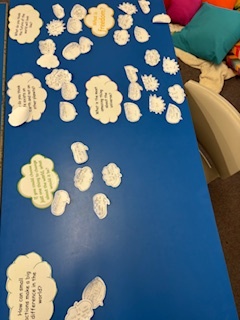
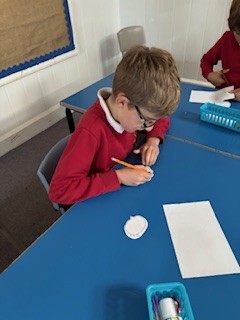
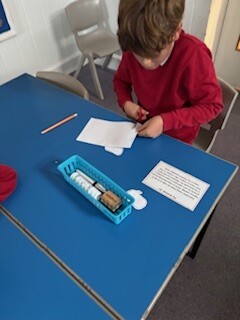
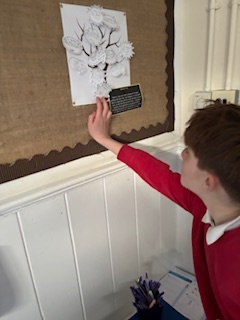
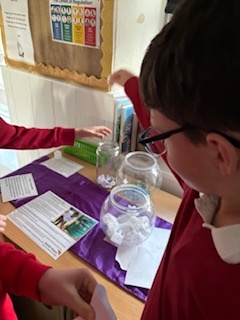
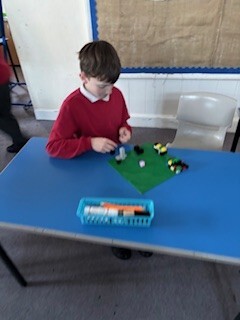
Pupil Voice
"Prayer spaces help me to slow down, be thoughtful, and connect my ideas to how I live everyday life." - Elliot
"Sitting in the tipi helped me feel calm and ready to listen to my thoughts and prayers." - Ted
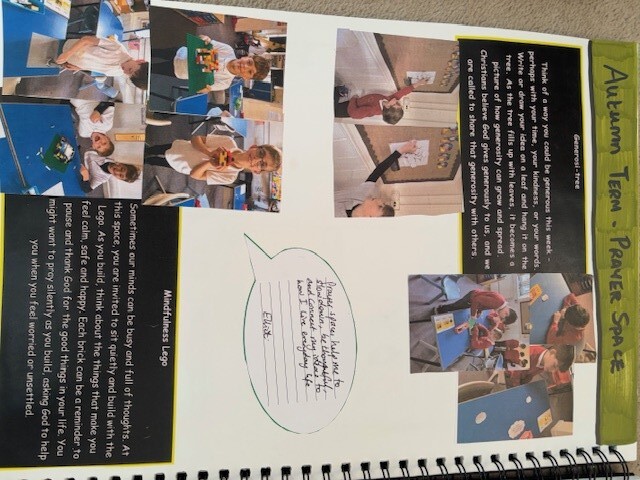
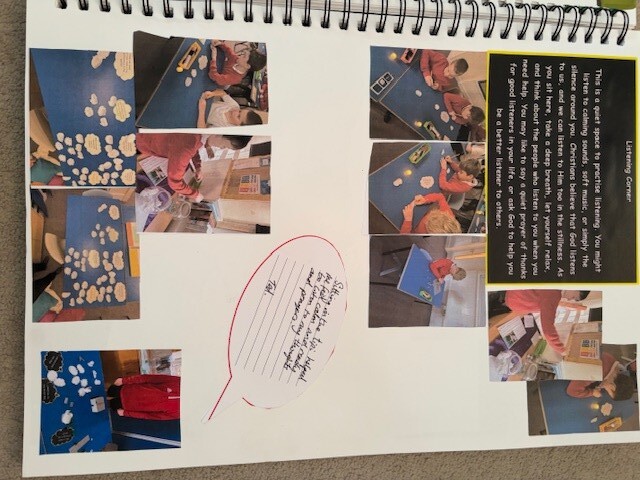
Term 3 & 4
Mindfulness Colouring - "Sit quietly and choose a colouring sheet. As you colour, take slow breaths and think about something you are thankful for today. If your mind wanders, gently bring it back to your colouring."
Justice Stones: What is Fair? -
"Pick up a stone and think about a time when something felt fair or unfair. On a sticky note, finish one of these sentences:
Justice means…
I want to be fair when I…"
Christian Aid Prayer Chain - "On a paper strip, write or draw a prayer for people who do not have enough food, clean water, or safety. Link your strip to the others to make a prayer chain."
Big Questions - We have the opportunity to answer big questions in the world, including "What does peace look like?" and "How can we care for the planet?"
Justice Footsteps - Walking the Right Path - "Choose a paper footprint. Write or draw one way you can make the world fairer (e.g. including others, sharing, telling the truth.) Lay your footprint along the path."
Curriculum
- Behaviour - Ready, Respectful, Safe
- Classes
- Curriculum Intent
- Home Learning - Learning with Parents
- Inclusion
- Junior Citizenship
- Mathematics
- Music Lessons
- Our Curriculum
- Our Library
- Reading and Phonics
- School Council
- Sport and Health
- Subjects: Modern Foreign Language
- Forest School
- Memorable Experiences
- Year 6 Residential
- Enrichment Clubs
- Outdoor Learning and Play
- British Values
- Personal Development
- Eco School
- Express Events
- Writing


